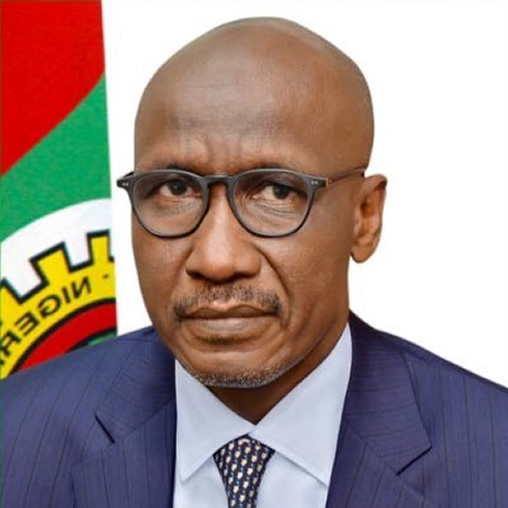Oil and Gas
NNPC records N211. 62bn from products sales in February – Report

The Nigerian National Petroleum Corporation (NNPC) says it recorded ₦211.62 billion sale of white products in February.
The corporation disclosed this in its Monthly Financial and Operation Report (MFOR), released in Abuja on Tuesday. push({}); adsbygoogle || []).push({});
The white products are Kerosene, Diesel and Premium Motor Spirit (PMS), also known as petrol.
The sales, it said, were made by the Petroleum Products Marketing Company (PPMC), the corporation’s downstream subsidiary company in charge of bulk sales and distribution of petroleum products.
It noted that the ₦211.62billion figure was significantly higher compared to the previous month’s record, which stood at ₦151.79billion.
It also indicated that total revenues recorded from the sales of white products for the period, February 2019 to February 2020, stood at about ₦2.6 trillion.
According to the report, petrol contributes about 98.06 per cent of the total sales value of about ₦2.5trillion.
The report stated that about 1.7billion litres of white products were sold and distributed by PPMC in the month of February compared with about 1.2 billion litres sold in January.
“This comprised about 1.7 billion litres of PMS and 1.09million litres of AGO.
“Also, there was sale of 0.01million litres of special product, Low Pour Fuel Oil (LPFO) in the month.
“Total sale and distribution of white products for the period February 2019 to February 2020 stood at about 21billion litres, and PMS accounted for 20.8billion litres or 98.73 per cent,” it said.
The report further noted that during the period under review, a total of 32 pipeline-points either malfunctioned or were vandalised.
This, it said, represented about 47 per cent decrease from the 60 points recorded in January.
“These comprised of 22 pipeline breaches, eight weld failures and two pipeline ruptures.
“Mosimi area accounted for 78 per cent of total cases, the Port Harcourt axis 16 per cent, and all other routes accounted for the remaining 6 per cent,” it said
On natural Gas off-take, commercialisation and utilisation, it noted that out of the 241.74 Billion Cubic Feet (BCF) of gas supplied in February, 146.54BCF was commercialised.
This consist of 35.83BCF and 110.71BCF for the domestic and export market respectively.
The report noted it translated to a total supply of 1,235.56 million Standard Cubic Feet per day (mmscfd) of gas to the domestic market and 3,817.40mmscfd of gas supplied to the export market for the month.
The report further said that 699mmscfd was delivered to gas-fired power plants to generate an average power of about 3,064MW, compared with January, when an average of 640mmscfd was supplied to generate 2,683MW.
The report also indicated an increased trading surplus of ₦3.95billion compared to the ₦1.87billion surplus posted in January.
The 111 per cent growth in the month, the report stated, was largely attributable to improved performance of the Nigerian Gas Company (NGC), as a result of its low expenses put at over 100 per cent.
Other reasons cited in the report for the increased trading surplus were the reduced deficits post by the downstream units, refineries, as well as the NNPC corporate headquarters. (NAN)
Author Profile

- Prince Abdulrahman Obaje is a Media, Information and Computer Technology Consultant. A quintessential Journalist, online marketer, social media strategist, Mathematician and Computer Scientist is based in Abuja, Nigeria. He is the Founder and the Publisher of The Informavores!. You can reach me on +234 805 939 5252 or send i-witness report directly to me on news@informavores.com.ng.
Latest entries
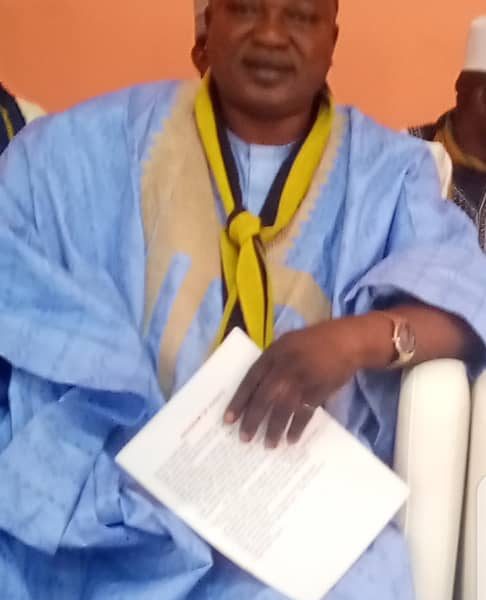 NewsApril 11, 2024Eid-El-Fitr: ICDA North Central Coordinator Urges Muslim Faithfuls To Abide By Ramadan Lessons
NewsApril 11, 2024Eid-El-Fitr: ICDA North Central Coordinator Urges Muslim Faithfuls To Abide By Ramadan Lessons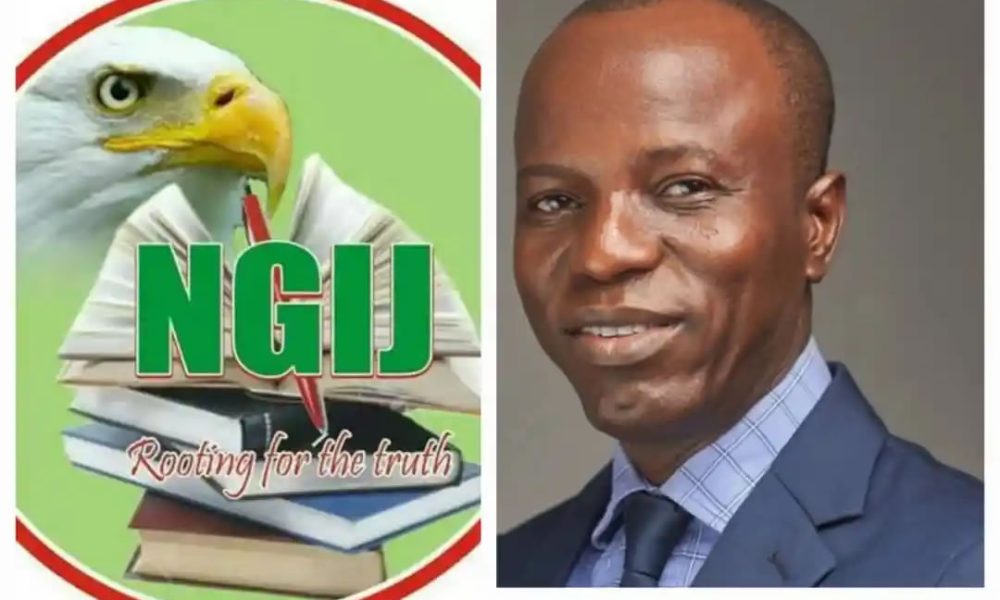 NewsMarch 20, 2024Investigative Journalists Group, NGIJ Hails Aderinokun on Appointment as Head of Media at Access Corp
NewsMarch 20, 2024Investigative Journalists Group, NGIJ Hails Aderinokun on Appointment as Head of Media at Access Corp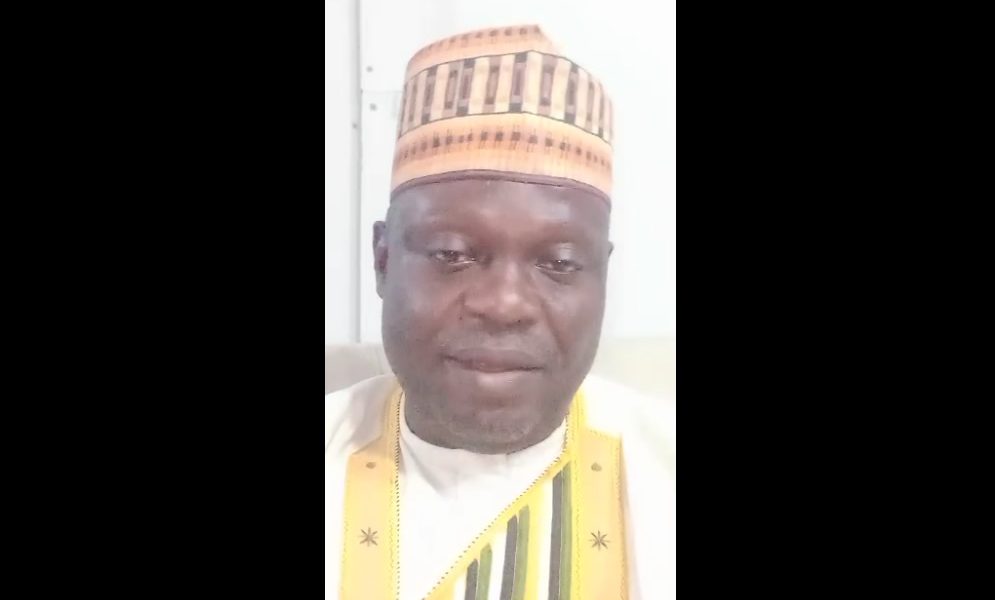 NewsMarch 4, 2024ICDA Chairman, Abubakar Sadiq Debunks Rumours of Unpopular Movement, Calls for Prayers
NewsMarch 4, 2024ICDA Chairman, Abubakar Sadiq Debunks Rumours of Unpopular Movement, Calls for Prayers NewsFebruary 23, 2024NGIJ’s Call to President Tinubu: Address Economic and Security Concerns Before Nigerians Take to the Streets
NewsFebruary 23, 2024NGIJ’s Call to President Tinubu: Address Economic and Security Concerns Before Nigerians Take to the Streets
Oil and Gas
Senate To Commence Public Hearing As Nation Loses $9 billion yearly On Mineral Resources
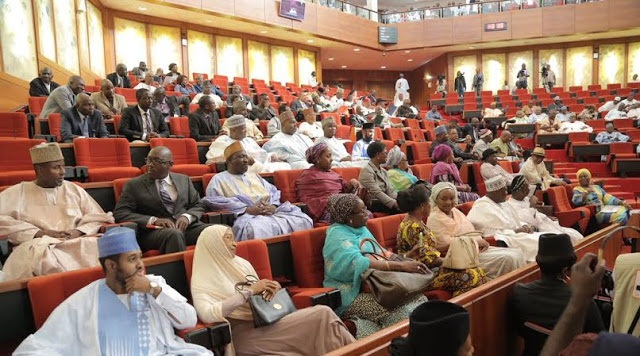
The Senate Committee’s would commence a 3-day public hearing Monday 13th September, 2021 on mineral resources owing to smuggling and illegal mining in the country.
The motion that is sponsored by the former governor of Abia State and Senator representing Abia North Senatorial District, Orji Uzor Kalu would focus on smuggling and illegal mining across the mineral resources endowed States
The cost of smuggling and illegal mining of gold was put at about $9 billion yearly in Nigeria which the Nigerian Senate expressed concern through a motion. com/pagead/js/adsbygoogle. js">
Relevant government and regulatory agencies in the sector would be grilled in a public hearing that will be chaired by the Chairman, Senate Committee on Solid Minerals, Mines, Steel Development and Metallurgy, Tanko Al-Makura.
According to a notice signed by Al-Makura, the Committee extended invitations to state governors; Central Bank of Nigeria; ministers of Mines and Steel Development; Finance and Budget; DGs/CEOs of parastatals and agencies under the Ministry of Mines and Steel Development; Executive Secretary of NEITI; Nigeria Labour Congress, Nigeria Immigration, among others.
Senator Kalu who is also the Chief Whip of the Senate had disclosed in the motion that mineral deposits were capable of sustaining Nigeria’s gross earnings, if smuggling and illegal activities were contained in the sector noting that Nigeria loses an estimated $54 billion from 2012 to 2018.
The lawmaker lamented the activities of unlicensed miners and incessant smuggling of the solid minerals out of the country by middlemen given the huge revenue losses, adding that over 250,000 jobs could be generated with over $500 million royalties and taxes paid to the Federal Government.
Author Profile

- Prince Abdulrahman Obaje is a Media, Information and Computer Technology Consultant. A quintessential Journalist, online marketer, social media strategist, Mathematician and Computer Scientist is based in Abuja, Nigeria. He is the Founder and the Publisher of The Informavores!. You can reach me on +234 805 939 5252 or send i-witness report directly to me on news@informavores.com.ng.
Latest entries
 NewsApril 11, 2024Eid-El-Fitr: ICDA North Central Coordinator Urges Muslim Faithfuls To Abide By Ramadan Lessons
NewsApril 11, 2024Eid-El-Fitr: ICDA North Central Coordinator Urges Muslim Faithfuls To Abide By Ramadan Lessons NewsMarch 20, 2024Investigative Journalists Group, NGIJ Hails Aderinokun on Appointment as Head of Media at Access Corp
NewsMarch 20, 2024Investigative Journalists Group, NGIJ Hails Aderinokun on Appointment as Head of Media at Access Corp NewsMarch 4, 2024ICDA Chairman, Abubakar Sadiq Debunks Rumours of Unpopular Movement, Calls for Prayers
NewsMarch 4, 2024ICDA Chairman, Abubakar Sadiq Debunks Rumours of Unpopular Movement, Calls for Prayers NewsFebruary 23, 2024NGIJ’s Call to President Tinubu: Address Economic and Security Concerns Before Nigerians Take to the Streets
NewsFebruary 23, 2024NGIJ’s Call to President Tinubu: Address Economic and Security Concerns Before Nigerians Take to the Streets
Oil and Gas
NCDMB, ITF train 255 youths in vocational skills
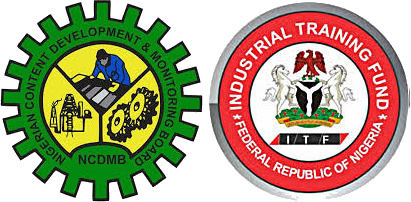
The Nigerian Content Development and Monitoring Board (NCDMB) has, in partnership with Industrial Training Fund (ITF), trained 255 youths in nine vocational skills.
The board disclosed this in a statement issued by its management, in Abuja, on Sunday 30th August, 2020. adsbygoogle || []).push({}); adsbygoogle || []).push({});
It said the six months training that was being funded by the NCDMB and would be conducted by the ITF would cover classroom and intensive practical exercises in Hospitality and Tourism, Mobile Phone Repairs and Troubleshooting.
Others areas of interest, it said, include Information and Communication Technology, Electrical/Electronic Technology and Industrial Automation and Mechatronics.
Also, Instrumentation and Process Control, Mechanical Services & Maintenance, Residential Air-Conditioning and Refrigeration Maintenance and Building Technology.
It added that the beneficiaries were selected from the Board’s NOGIC-JQS platform, with representation from the six geo-political zones of the country.
”A further selection exercise was organised for the trainees, involving computer-based tests and oral interviews in Abuja, Lagos and Port Harcourt,” it added.
It quoted the Executive Secretary of NCDMB, Mr Simbi Wabote at the kick off ceremony as saying that the initiative was consistent with the objectives of the Nigerian Oil and Gas Industry Content Development (NOGICD) Act and NCDMB’s 10-Year Strategic Roadmap.
This, he said, targeted at growing Nigerian Content from 27 per cent in 2017 to 70 per cent by 2027.
“The Roadmap also aspires to retain over14billion dollars out of 20 billion dollars estimated annual industry spend in the country and create over 300,000 direct and indirect employment.
”The intent of the NCDMB/ITF collaboration is to close gaps in vocational and entrepreneurship skills among Nigerian youths, drive self-employment and value creation in the oil and gas industry.
“Also, linkage sectors and address youths’ redundancy and loss of economic value of human capital needed to drive economic growth.
‘Part of the goal is also to strengthen the linkage between the oil and gas industry and other sectors of the Nigerian economy and complement the Federal Government`s efforts towards job creation and diversification of the Nigerian economy,” he added.
Wabote further highlighted the premium NCDMB places on human capital development.
According to him, from the inception of the Board in 2010, over 9,000 Nigerians have benefitted from our training in various skill areas for graduates and artisans resulting in over 10 million training manhours.
He assured that NCDMB would continue its training interventions and widening its coverage to vocational and entrepreneurship skills, which are critical to the creation of employment, sustainable growth and diversification of the Nigerian economy.
He expressed delight over the Board’s partnership with ITF, which had excelled in the strategic role of leading the development of knowledge and skills in the various sectors of the Nigerian economy.
Source: NAN
Author Profile

- Prince Abdulrahman Obaje is a Media, Information and Computer Technology Consultant. A quintessential Journalist, online marketer, social media strategist, Mathematician and Computer Scientist is based in Abuja, Nigeria. He is the Founder and the Publisher of The Informavores!. You can reach me on +234 805 939 5252 or send i-witness report directly to me on news@informavores.com.ng.
Latest entries
 NewsApril 11, 2024Eid-El-Fitr: ICDA North Central Coordinator Urges Muslim Faithfuls To Abide By Ramadan Lessons
NewsApril 11, 2024Eid-El-Fitr: ICDA North Central Coordinator Urges Muslim Faithfuls To Abide By Ramadan Lessons NewsMarch 20, 2024Investigative Journalists Group, NGIJ Hails Aderinokun on Appointment as Head of Media at Access Corp
NewsMarch 20, 2024Investigative Journalists Group, NGIJ Hails Aderinokun on Appointment as Head of Media at Access Corp NewsMarch 4, 2024ICDA Chairman, Abubakar Sadiq Debunks Rumours of Unpopular Movement, Calls for Prayers
NewsMarch 4, 2024ICDA Chairman, Abubakar Sadiq Debunks Rumours of Unpopular Movement, Calls for Prayers NewsFebruary 23, 2024NGIJ’s Call to President Tinubu: Address Economic and Security Concerns Before Nigerians Take to the Streets
NewsFebruary 23, 2024NGIJ’s Call to President Tinubu: Address Economic and Security Concerns Before Nigerians Take to the Streets
Oil and Gas
Sustainable Local Content Practice Reduced the Cost of Oil and Gas Projects – Wabote

Executive Secretary, Nigeria Content Development and Monitoring Board (NCDMB), Mr Simbi Wabote, said that adequate evidence had proven that sustainable Local Content practice reduced the cost of oil and gas projects in addition to creating job opportunities and economic prosperity. adsbygoogle || []).push({}); adsbygoogle || []).push({});
Wabote disclosed this in a statement signed by its Corporate Communications and issued to newsmen on Saturday 29th August, 2020 in Lagos.
He also disclosed that it saved $2 billion on Engineering Procurement and Construction (EPC) contract for Nigeria LNG Train 7 Project through the Nigerian Oil and Gas Industry Content Development (NOGICD) Act implementation.
He spoke at a workshop held for the judiciary via zoom which drew over 117 participants, including Justices of the Supreme Court, Appeal Court, National Industrial Court, Federal High Court and external solicitors.
He gave example with the LNG Train 7 EPC bid, where Saipem Contracting Nigeria and its consortium, won the contract with lower bid, leveraging on 50 years commitment to local content and investments in Nigeria.
”In the concluded LNG Train 7 project contract awarded, the difference in price between Saipem that had established itself in Nigeria and the second lowest bidder coming from outside the country was $2 billion.
“That’s a huge sum of money that this country would have lost if not for the drive for the development of local content.
“The other consortium had no footprint in the country and it proposed to put extra $2 billion on the back of the project to develop local capacity to execute the project.
“This is evidence of cost savings associated with the development of local content,” he said.
Wabote noted that developing local content and building capacity would always entail some costs at the beginning.
According to him, such costs ultimately gets reduced overtime and creates jobs and stability in the polity.
He also clarified that the focus of Nigerian Content implementation was not Nigerianisation, rather it encouraged domiciliation of capacities and promotion of foreign direct investments and home grown investments.
The executive secretary said the NOGICD Act would always protect investments in the country, adding that companies that built capacities were given first right of refusal in industry projects.
“The law is a protective instrument for businesses. There are cable manufacturers in Lagos.
“If there is any opportunity to supply cables to oil and gas companies in Nigeria, those companies have the right of first refusal,” he said.
Also, the Chief Justice of Nigeria, Justice Tanko Muhammad, described the implementation of local content policies across the globe as an apparatus through which citizens of oil rich countries derive value from crude oil resources.
Muhammad that was represented by Justice Olukayode Ariwoola thanked NCDMB for enhancing the judiciary capacity to dispense justice from an informed and contemporary position, particularly as it related to Local Content development and oil and gas operations.
Source: NAN
Author Profile

- Prince Abdulrahman Obaje is a Media, Information and Computer Technology Consultant. A quintessential Journalist, online marketer, social media strategist, Mathematician and Computer Scientist is based in Abuja, Nigeria. He is the Founder and the Publisher of The Informavores!. You can reach me on +234 805 939 5252 or send i-witness report directly to me on news@informavores.com.ng.
Latest entries
 NewsApril 11, 2024Eid-El-Fitr: ICDA North Central Coordinator Urges Muslim Faithfuls To Abide By Ramadan Lessons
NewsApril 11, 2024Eid-El-Fitr: ICDA North Central Coordinator Urges Muslim Faithfuls To Abide By Ramadan Lessons NewsMarch 20, 2024Investigative Journalists Group, NGIJ Hails Aderinokun on Appointment as Head of Media at Access Corp
NewsMarch 20, 2024Investigative Journalists Group, NGIJ Hails Aderinokun on Appointment as Head of Media at Access Corp NewsMarch 4, 2024ICDA Chairman, Abubakar Sadiq Debunks Rumours of Unpopular Movement, Calls for Prayers
NewsMarch 4, 2024ICDA Chairman, Abubakar Sadiq Debunks Rumours of Unpopular Movement, Calls for Prayers NewsFebruary 23, 2024NGIJ’s Call to President Tinubu: Address Economic and Security Concerns Before Nigerians Take to the Streets
NewsFebruary 23, 2024NGIJ’s Call to President Tinubu: Address Economic and Security Concerns Before Nigerians Take to the Streets


